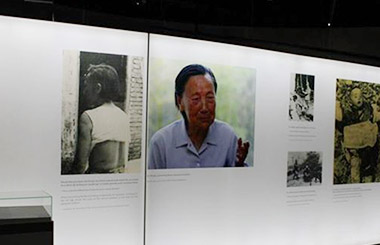Film summit to explore Hollywood-China cooperation
Hollywood and China will deepen their collaboration in the movie industry with a Los Angeles summit next month, where thought leaders, top executives and talent will discuss China's mounting bet on Hollywood, animation, the future of digital and immersive entertainment.
The Seventh Annual US-China Film Summit, scheduled for Nov 1 at the Luskin Conference Center of University of California –Los Angeles, will feature panels examining timely issues and will introduce "Talent Spotlight" and "Executive Spotlight" keynote conversations, according to Asia Society Southern California, the summit organizer.
"Talent Spotlight" speakers include Jon M. Chu, director of the Now You See Me and Step Up movies, and "Executive Spotlight" speakers include Jack Gao, CEO of Wanda Cultural Industry Group, and Michael Ellis, Asia-Pacific President and Managing Director of MPA.
During the summit, the panelists and speakers are expected to discuss such topics as China's deepening bet on Hollywood talent and America's groundwork to develop new financing sources in China, China's digital-content promise and lessons for Hollywood, as well as the art of making international co-productions.
"In the past year, collaboration between Hollywood and China has taken off in new directions, and Asia Society's US-China Film Summit brings together the thought leaders and key people at the forefront this dynamic relationship," said Tom Nagorski, executive vice president of Asia Society.
"We're proud to recognize honorees who represent business and creative leadership in film and efforts to build bridges between the US and China," he said.
During the event, three honorees - Wang Zhonglei, vice chairman and CEO of Huayi Brothers Media, Melissa Cobb, head of studio and CEO of Oriental DreamWorks, and Cao Baoping, a writer and director - will be honored for their roles in film industry leadership, US-China creative collaboration and award-winning storytelling respectively.
"Hollywood and China's film industry are still learning to get to know how the other operates. The audience in China and the audience in America are enormous. They need one another," said Jonathan Landreth, co-organizer of the summit and the managing editor of China File, the website of the Arthur Ross Center on US-China Relations at the Asia Society in New York.
He explained that it was because Chinese finance was becoming more important to Hollywood companies to make multi-million-dollar budget blockbuster films and the Chinese audience were becoming more and more important to justify the production of such enormously expensive movies.
"Moreover, Hollywood has a lot to teach China," he said. "Hollywood has been making movies that get exported around the world for over 100 years. But there are very few Chinese language films that succeed outside of Asia, let alone outside of China. Much of the world doesn't watch Chinese films."
One of the ways that Hollywood can help teach the Chinese film industry, according to Landreth, is to talk about the universal story-telling that pays attention to what human beings, not the governments, wish to have as part of the their entertainment.
"Both industries are going to have to learn that the other system is different and learn to accept the differences, not try to change the other," he said. "We may see increasingly that films that are made at very expensive level are going to be made in two versions, one for America and the world, and one for China."






















